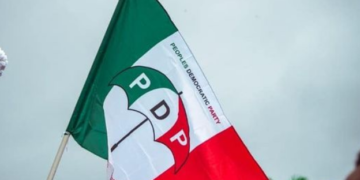
By Ibrahim Kegbegbe
ABUJA—The Nigerian Senate has suspended Senator Natasha Akpoti-Uduaghan (Kogi Central) for six months following a series of confrontations with Senate President Godswill Akpabio, including allegations of sexual harassment and a N1.3 billion defamation lawsuit.
The suspension, announced on Thursday, March 6, 2025, followed the adoption of a report by the Senate Committee on Ethics, Privileges, and Public Petitions, chaired by Senator Neda Imaseun. As part of the sanction, Akpoti-Uduaghan will forfeit her salaries, allowances, and security details for the duration of the suspension.
Sexual Harassment Allegations and Legal Battle
The dispute began when Akpoti-Uduaghan formally accused Akpabio of sexual harassment, submitting a petition to the Senate. The allegations quickly gained national attention, prompting varied reactions from lawmakers and the public.
Akpabio, however, denied the claims, insisting he has always maintained professionalism and respect toward his colleagues. In response, Akpoti-Uduaghan escalated the matter by filing a defamation lawsuit against the Senate President, demanding N1.3 billion in damages.
Her legal action fueled tensions within the legislative chamber, with Akpabio’s allies dismissing the claims as politically motivated. The case remains in court, with legal experts predicting a drawn-out battle.
Suspension Sparks Outrage
Akpoti-Uduaghan’s suspension has sparked debates across Nigeria, with some seeing it as an abuse of legislative power while others argue it was necessary to maintain Senate decorum.
“This is a clear case of injustice,” Akpoti-Uduaghan said in a statement following her suspension. “I was elected to represent my people, and silencing me through suspension is an attack on democracy.”
Women’s rights activists and opposition politicians have condemned the Senate’s decision, arguing that it undermines the fight against harassment and gender-based discrimination in Nigeria’s political space.
Meanwhile, the First Lady, Oluremi Tinubu, has weighed in on the controversy, though she stopped short of taking sides. Her comments have been widely interpreted as a call for reconciliation between the warring parties.
In contrast, groups like the South-South Women Congress have called on Akpoti-Uduaghan to apologize to Akpabio, accusing her of disrespecting Senate rules and engaging in conduct unbecoming of a legislator.
What Next?
With the suspension in place and legal battles looming, the coming months will be critical in determining the political fate of Akpoti-Uduaghan. While her supporters vow to challenge the Senate’s decision, others argue that she should use this period to reflect and seek reconciliation.
The Senate, on the other hand, remains firm in its stance, warning that further actions could be taken if Akpoti-Uduaghan continues what they describe as “disruptive behavior.”
As Nigerians follow the unfolding drama, many are left questioning the state of democracy within the country’s legislative chambers—whether this is a case of accountability or political suppression.

















